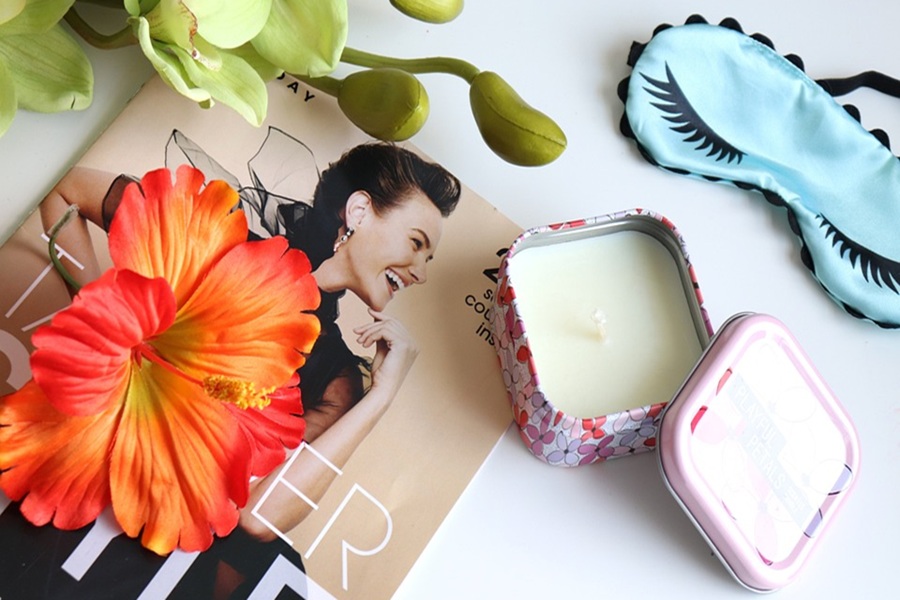
Follow us Now on Telegram ! Get daily 10 - 12 Interesting Updates. Join our Telegram Channel https://t.me/OhWomen
Download Telegram App before Joining the Channel
Beauty has often been perceived through the lens of external appearance—radiant skin, glossy hair, or a flawless makeup look. However, the growing emphasis on self-care and well-being is shifting this perspective. In recent years, the connection between mental health and beauty has gained significant attention, as it becomes increasingly clear that true beauty comes from within. Our mental and emotional states have a profound impact on how we perceive ourselves and how our skin and body react to external stimuli.
The Mind-Body Connection
The connection between mental health and physical appearance is not just a metaphor—it's rooted in science. When we experience stress, anxiety, or depression, our bodies go into a heightened state of alertness, triggering the release of stress hormones like cortisol. Elevated cortisol levels can lead to a range of skin issues, including acne, eczema, and premature aging. Likewise, poor mental health can affect sleep, which in turn impacts our skin’s ability to repair itself and rejuvenate overnight.
On the flip side, positive mental health can have a noticeable effect on our physical appearance. When we're happy, calm, and relaxed, our bodies produce less cortisol and more of the "feel-good" hormones like serotonin and endorphins. These hormones help to reduce inflammation, promote circulation, and maintain healthy skin. This is why people often say that someone’s inner peace and joy are reflected in their outer glow.
Beauty Routines as Self-Care
Incorporating beauty routines into mental health care is a growing trend. Simple activities like skincare, hair care, or even makeup application can serve as moments of mindfulness, helping to reduce stress and promote a sense of well-being. The process of gently massaging a moisturizer into your skin or taking time to apply makeup can create a ritualistic escape from daily stressors. These practices not only improve the appearance of the skin but also offer an opportunity to slow down and focus on the present moment.
For many, these routines become a form of self-love, a reminder that they are worthy of care and attention. It's important to remember that beauty rituals should be a source of enjoyment, not obligation. The growing popularity of brands that focus on self-care, relaxation, and mental well-being alongside beauty underscores this shift.
The Impact of Social Media on Mental Health and Beauty Standards
While social media has connected people across the globe, it has also contributed to unrealistic beauty standards that can negatively affect mental health. Platforms like Instagram, TikTok, and YouTube are flooded with curated images of flawless skin, perfect bodies, and edited photos, which can lead to feelings of inadequacy or low self-esteem.
However, there has also been a push for more authentic beauty on social media, with influencers, celebrities, and brands embracing unfiltered, real-life representations of beauty. Movements like #NoFilter and #BodyPositivity are encouraging people to embrace their natural selves, flaws and all. By fostering a sense of inclusivity and authenticity, social media can play a positive role in mental health by helping individuals feel seen, understood, and empowered to love themselves.
The Role of Mental Health Professionals in Beauty
Mental health professionals are also recognizing the importance of incorporating self-care and beauty practices into overall wellness. Therapists and counselors encourage patients to engage in activities that boost self-esteem, promote relaxation, and help build a positive self-image. Additionally, practices like mindfulness and meditation, which are often part of therapy, can reduce stress and improve emotional well-being, ultimately leading to better skin and physical health.
Beauty professionals, such as estheticians, makeup artists, and hairstylists, are increasingly trained to be more than just providers of cosmetic services. They’re becoming allies in mental health, offering clients a space for relaxation and self-expression. This holistic approach to beauty recognizes that a person’s mental state plays a crucial role in how they feel about themselves, and self-care routines go beyond just looking good—they are about feeling good.
Conclusion
The intersection of mental health and beauty is undeniable. True beauty comes from within, and by nurturing our mental and emotional health, we can enhance our physical appearance in ways that go far beyond cosmetics. A positive mental state can lead to healthier skin, more vibrant hair, and an overall sense of well-being that shines through in our appearance.
Beauty routines should be seen not just as a way to enhance the outer self but as a form of self-care that nurtures the mind, body, and soul. By prioritizing mental health, we can cultivate a more balanced, holistic approach to beauty—one that celebrates self-love, authenticity, and inner peace. After all, when we feel good on the inside, it shows on the outside.
Source - OhWomen